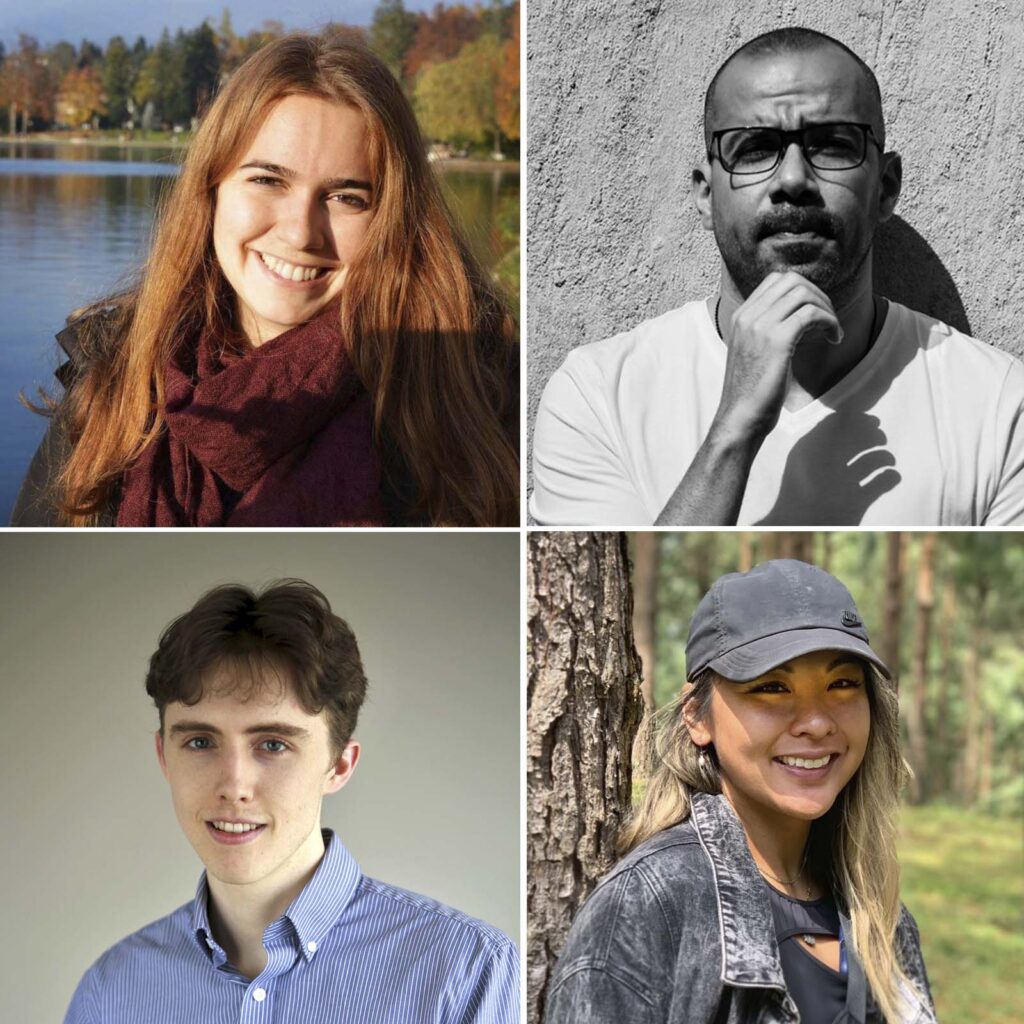
Four CivMin graduate students have been awarded scholarships from the Centre for Global Engineering (CGEN). The feat is impressive, as half of the eight scholarships awarded have been granted to MASc and PhD candidates within the Department. A total pool of 40 applicants, representing more than a doubling of applicants since 2018, were reviewed.
Our winners include:
- Gabrielle Migliato Marega (CivE PhD candidate under the supervision of Prof. David Meyer) has been awarded the Paul Cadario Doctoral Fellowship in Global Engineering,
- Ahmed-Effat Mosa (CivE PhD candidate under the supervision of Prof. Sarah Haines) has been awarded the Paul Cadario Doctoral Fellowship in Global Engineering
- Keagan Hudson Rankin (CivE MASc candidate under the supervision of Prof. Shoshanna Saxe) has been awarded the C.W. Bowman Graduate Scholarship in Energy Research
- Karlye Wong (CivE PhD candidate under the supervision of Prof. Ron Hofmann) has been awarded the Paul Cadario Doctoral Fellowship in Global Engineering
“It’s been incredible seeing the number of scholarship applicants double every few years,” says Ahmed Mahmoud, Program Manager at CGEN. “Those awards used to be low-hanging fruit for certain students working in this Global Development domain, but they have since become extremely competitive. I believe this reflects a growing appetite in CivMin – and across Engineering – to engage in projects that prioritize participatory research, social impact, and sustainable development. CGEN will do all it can to ensure those projects continue being successful,”
We asked our CivMin award winners to provide a few paragraphs about themselves and their work.
Gabrielle Migliato Marega
CivE PhD candidate under the supervision of Prof. David Meyer has been awarded the Paul Cadario Doctoral Fellowship in Global Engineering
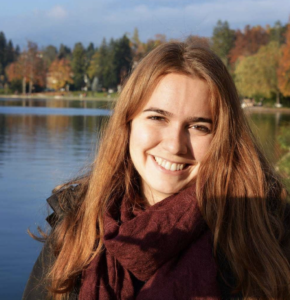
I am a second-year PhD candidate working under the supervision of Prof. David Meyer at the Centre for Global Engineering. I was born and raised in Brazil, where I did an undergraduate degree in Civil Engineering and an MSc in Hydraulics and Sanitation. Growing up in a developing country, I witnessed first-hand how a lack of basic services can have devastating impacts on people’s lives. I was lucky enough to live in an area of a major city where the water and sanitary infrastructure is similar to that which we have here in Toronto. However, peri-urban areas and low-income neighbourhoods are only a 20-minute drive away from my family’s home. The inhabitants of these areas are exposed to a completely different reality, one that meant they did not have access to water or sewage infrastructure for most of the last decade.
Fortunately, my city’s coverage was expanded in recent years and today almost 100 per cent of the city is covered with at least basic services. However, this is not the reality in most cities in developing countries. Access to safe sanitation is a fundamental human right, yet two billion people (more than 25 per cent of the world’s population!) still lack access to basic sanitation, imposing significant health, economic and social burdens on the most vulnerable populations worldwide.
In my research, I focus on studying how we can expand sanitary sewers in developing countries. Sanitation infrastructure is expected to operate for decades, yet rapid urbanization and climate change render the future increasingly uncertain. These uncertainties are accentuated in low- and middle-income countries, most of which experience unpredictable urbanization and are vulnerable to climate change effects. My goal is to model these uncertainties, quantify the uncertainty-induced risks to sanitation infrastructure and assess the degree to which sewer infrastructure design guidelines mitigate these uncertainties and risks. With this work, we aim to spur innovative approaches to manage uncertainty in the sanitation industry, creating a more resilient and sustainable urban infrastructure for all.
Ahmed-Effat Mosa
CivE PhD candidate under the supervision of Prof. Sarah Haines has been awarded the Paul Cadario Doctoral Fellowship in Global Engineering
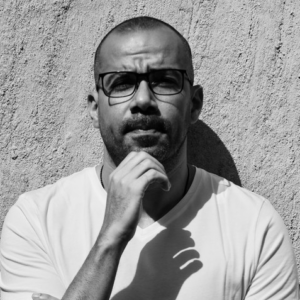
Effat is an incoming PhD candidate in Civil Engineering at the University of Toronto. He holds a Bachelor in Architectural Engineering and an MSc in Sustainable Design of Built Environments with distinction and completed multiple continuing studies in Computational thinking and Data Analytics at the University of Pennsylvania and Harvard Business School. He has broad industry experience implementing sustainable urban and building designs between AEC and tech firms. Effat developed a niche as a High-Performance Built Environment Activist; Health Equity, Impact, and Urban Innovation are his main research interests.
Through his PhD proposal, Effat aims to further expand his multidisciplinary skills in building science and indoor air quality and use building performance optimization and community engagement tools to improve housing quality in Indigenous First Nation communities in Canada. His proposed research will provide essential information and community support to rethink indoor air quality (IAQ) and energy usage in these communities. This work is critical as about a quarter (24 per cent) of First Nations people in Canada live in substandard housing that requires significant repair. These issues in housing quality may have substantial implications for health and well-being as poor housing quality is associated with increased hospital visits in children and the prevalence of upper respiratory diseases. It is the motivation to make the built environment inclusive, safe, resilient and sustainable in general and to ensure health equity, quality of life, and equal access to technology and innovation in all communities that drives his work.
This proposal aligns with CGEN’s efforts to support outstanding research projects focusing on participatory engagement with Indigenous communities in Canada. Improving housing quality in impacted communities is a primary building block for healthy communities and a sustainable built environment and ties directly to multiple United Nations Sustainable Development Goals (SDGs) which is the global shared blueprint for peace and prosperity for people and the planet.
Keagan Hudson Rankin
CivE MASc candidate under the supervision of Prof. Shoshanna Saxe has been awarded the C.W. Bowman Graduate Scholarship in Energy Research
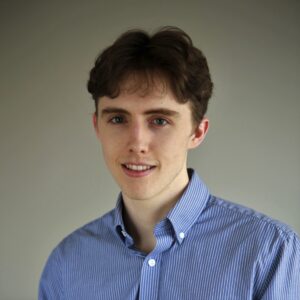
Keagan’s research investigates the relationship between infrastructure needs and greenhouse gas (GHG) emissions from materials. Material production and use makes up a quarter of global GHG emissions and must be reduced to keep global temperature rise below 1.5°C. At the same time, increasing population and global development is driving massive demand for construction materials in infrastructure, especially in developing countries. These countries require new strategies to facilitate equitable development without compromising sustainability goals.
To address this need, Keagan is researching how material efficiency strategies, like low-carbon materials, urban mining, and changes in building form, could be applied to residential construction. Currently, he is looking at a residential form called missing middle that has the potential to combine the material efficacy of lightweight, low-rise construction with the per-person efficiencies of multi-unit buildings. This residential form presents an opportunity for developing, and developed countries alike, to quickly build affordable shelter and raise standards of living without compromising global sustainability. Material efficiency strategies, when deployed with consideration for social and economic impacts, will allow growing cities to curb their emissions while supporting effective infrastructure operation and residents’ quality of life.
Keagan is a first-year MASc candidate with the Department of Civil & Mineral Engineering. He completed his undergraduate degree in engineering at University of New Brunswick before coming to Toronto for his graduate studies. Keagan is passionate about sustainable theory and mathematics, and he hopes to use this passion to help solve problems emerging from the interaction between humans and natural systems.
Karlye Wong
CivE PhD candidate under the supervision of Prof. Ron Hofmann has been awarded the Paul Cadario Doctoral Fellowship in Global Engineering
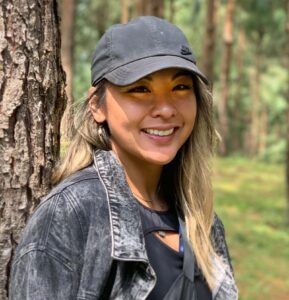
Following an MASc in Civil Engineering at the University of Toronto, Karlye spent five years working in NGOs and as an independent consultant managing and designing WASH (water, sanitation and hygiene) projects across sub-Saharan Africa. While based overseas in Tanzania, Karlye developed environmental risk and climate resiliency management systems in humanitarian settings and managed the implementation of WASH projects across 10 countries. Karlye believes UN SDG goal 6 (SDG 6) is a cornerstone to global development as clean, accessible, reliable water in a community can be transformative; it unlocks the burden of carrying water, enhances community health, improves food security, and can facilitate economic growth, particularly in rural and off-grid contexts. However, more sustainable solutions are needed as water stresses are exacerbating due to the pressures of climate change, population growth, urbanization, and most recently, global pandemics.
Karlye was compelled to return to academia to dig deep into the technical, economic, and social challenges that impact SDG 6 through sustainable access to clean water and other interconnected SDGs. Her proposed research will investigate the sustainable access to clean water through solar-powered UV-LED treatment and rainwater harvesting in off-grid communities in Mexico and Tanzania. This project aims to study how rainwater harvesting (RWH) and solar-powered UV-LED treatment can be implemented in off-grid households, schools, and health care facilities (HCFs) to improve water quality where centralized water services are unavailable. UV-LED treatment and RWH can offer a sustainable, decentralized, and low-cost treatment option to address water quality, hygiene, and risk of transmission, while building resilience to climate change and emerging health issues, like antimicrobial resistance and COVID-19. Karlye’s work will explore UV-LED at health care facilities in Tanzania, which serve a population of about 130,000, as well as households and schools in Mexico.
Ultimately, her intention is to optimize the Paul Cadario Fellowship to ensure the lessons gleaned from her research will be scalable and shared globally, including marginalized, off-grid and rural communities lacking access to clean water in Canada. Karlye looks forward to work with CGEN to collaborate with locally-based and international partners to integrate sustainability, grow strong research partnerships, facilitate international knowledge transfer, and build potential pathways for other U of T students to continue building the UN SDGs into its research.
ABOUT
CGEN is a multidisciplinary research institute at the University of Toronto which is mobilizing engineering researchers and students to solve the world’s most intractable problems. Its mandate is two-fold:
- To catalyze cutting-edge engineering research, and produce evidence-based solutions to the Grand Challenges facing the world’s most vulnerable populations. To date, CGEN has undertaken research projects which tackle food insecurity, water access, sanitation, energy poverty, safe housing, education, and community capacity-building both in low-income countries and in indigenous communities here in Canada
- To train the next generation of engineers to adapt to growing trends in globalization and to become effective global citizens
CGEN accomplishes these goals through a range of programs, which include: Research Projects, Courses, Capstone Projects, and Scholarships and Fellowships.
Paul Cadario Doctoral Fellowship in Global Engineering
This award was created through generous donations by Dr. Paul Cadario and the University of Toronto’s Faculty of Applied Science and Engineering. It is awarded to PhD students affiliated with the Centre for Global Engineering (as certified by the Director of the Centre or a designate) whose research has potential impact in the developing world.
Metcalfe Family Graduate Fellowship
This award was created through generous donations by Dr. Murray Metcalfe and the University of Toronto’s Faculty of Applied Science and Engineering. It will be awarded to current and incoming MASc and PhD students whose research has potential impact in the developing world. Applicants should highlight how their research has the potential to address a critical global challenge, in an area such as (but not limited to) energy poverty and climate change, building sustainable cities and infrastructure, data engineering for development, or engineering education for the 21st century.
The C.W. Bowman Graduate Scholarship in Energy Research
This award was created through generous donations by Dr. Clement W., Mrs. Marjorie Bowman, and the University of Toronto’s Faculty of Applied Science and Engineering. It is awarded to current and incoming MASc and PhD students who are pursuing studies or engaged in research relating to either Canada’s energy systems with a focus on the environment, or global energy systems relating to the environment and to sustainability issues.